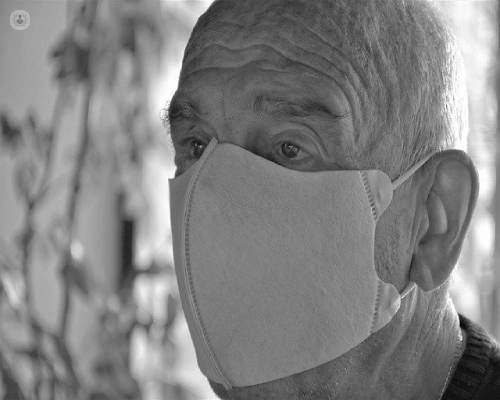COVID-19 and geriatric care
Autore:Dr Mashkur Khan explains how Covid-19 has affected care for the elderly.

How has COVID- l9 impacted geriatric care?
COVID-19 has impacted the elderly population more than any other age group. Elderly patients are more immunosuppressed and immunocompromised and they have been hit the hardest. They have also been infected with COVID- 19 at a higher rate than any other demographic and have often needed prolonged hospital care.
Are older patients being prioritised for the vaccine?
The older population have been vaccinated early and this is the right way forward. We have now vaccinated the majority of our elderly population, which has resulted in less severe side effects from the disease and has allowed the number of COVID patients in hospitals to decrease. Once all of the elderly population have had their second doses, we are hopeful that they can return to some kind of normality.
What conditions in older people can make them more vulnerable to COVID-19?
Elderly patients are more vulnerable if they have diabetes, hypertension, a blood disorder or cancer. They are also vulnerable if they take immunosuppressive drugs, such as steroids. Those who suffer from multisystem diseases like cystic fibrosis are also particularly vulnerable.
Studies have shown depression may be a risk factor for dementia. How can depression be avoided during the pandemic?
Social isolation, loneliness and not being able to see the family can have huge psychological and emotional effects on a person. Depression can be avoided by taking part in regular mental exercises and staying connected to loved ones by talking to the family every day over the telephone or via the internet. Going out for walks and exercising every day either in their garden or in the open field have also been proven to improve mental health.
What recommendations should be given to care homes during this time?
Initially, care homes were severely affected in the first wave of the pandemic. The care home situation is improving and now most care homes are COVID free'. Care homes have received some resources, such as PPE and cleaning equipment to help them cope with COVID-19. There are also various ongoing research projects which have been set up to look aftercare homes through early vaccination and subsequent follow-up.
In conclusion - the elderly population constitute two thirds of patients hospitalised with COVID. They appear to be the most vulnerable and most susceptible to the virus. Now that the majority of this demographic is vaccinated, we should soon be able to return to normality, but it’s still important to maintain the current safety measures.
Those with underlying multisystem diseases must remain vigilant and should always follow the advice of their GP or a specialist who can optimise their therapy, which will protect them from any vulnerabilities.
Dr Mashkur Khan is an expert consultant physician, based in London. Visit his profile here to request an appointment with him.


